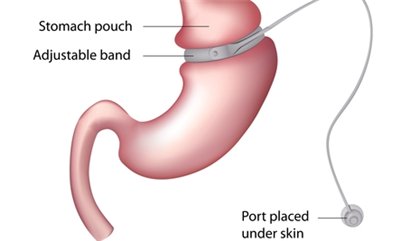Have you been experiencing constipation or irregular bowel movements while taking Ozempic? You’re not alone. As Ozempic becomes increasingly popular for managing type 2 diabetes and promoting weight loss, more people are noticing unexpected side effects—digestive discomfort being one of the most common. Let’s dive into the details, address your concerns, and explore why these bowel issues happen.
Why Does Ozempic Cause Constipation?
Ozempic, also known as semaglutide, is a glucagon-like peptide-1 (GLP-1) receptor agonist. Essentially, it mimics a natural hormone in your body that helps regulate blood sugar levels. But beyond blood sugar control, GLP-1 also slows down how quickly food moves through your stomach—a process called gastric emptying.
This slowed movement can help you feel full longer, which is great for weight loss. But it can also lead to constipation or irregular bowel movements for some people. In fact, clinical trials indicate that up to 20% of Ozempic users experience some level of constipation during their treatment.
A Natural Part of the Adjustment?
Is it just an adjustment phase, or will these symptoms persist? This is a common question for new Ozempic users. Interestingly, many patients find that these digestive issues tend to be the most noticeable during the initial weeks of treatment. As your body adjusts to the medication, symptoms like constipation often become less severe or even disappear.
However, for others, constipation might be a longer-term side effect that requires some changes in diet or routine. Fiber intake is one common recommendation. A diet rich in fiber can help counterbalance the slow gastric emptying effect of Ozempic.
Did you know? Adding just 25-30 grams of fiber per day can help improve bowel regularity. According to a study by the National Institutes of Health, most Americans only get about 15 grams of fiber per day—far less than recommended.
Should You Be Concerned About Constipation on Ozempic?
For most people, occasional constipation is not dangerous, but it can be uncomfortable. If you’re experiencing symptoms like bloating, cramping, or a significant change in bowel habits, it’s worth discussing these with your healthcare provider.
In severe cases, prolonged constipation can lead to complications like impaction or hemorrhoids. Fortunately, these are rare. Most users can manage the symptoms by focusing on hydration and regular exercise. Staying active helps to stimulate bowel movements naturally.
Comparing Side Effects: Ozempic vs. Other GLP-1 Agonists
You might wonder if other medications in the same category cause similar digestive issues. The answer is yes—GLP-1 receptor agonists, like Trulicity (dulaglutide) or Victoza (liraglutide), also have similar side effects. According to data from recent clinical studies, around 15-20% of people using GLP-1 agonists report constipation as a side effect.
Here is a comparison table of common side effects for different GLP-1 receptor agonists:
| Medication | Constipation | Nausea | Vomiting |
|---|---|---|---|
| Ozempic | 20% | 25% | 10% |
| Trulicity | 18% | 21% | 9% |
| Victoza | 16% | 22% | 11% |
These percentages suggest that gastrointestinal issues are not unique to Ozempic, but rather a shared characteristic among GLP-1 receptor agonists.
Practical Tips to Manage Constipation on Ozempic
If you’re struggling with constipation while on Ozempic, here are some practical steps to help ease your discomfort:
- Stay Hydrated: Aim to drink 8-10 cups of water a day. Dehydration is a leading cause of constipation, especially if your body is already adjusting to a new medication.
- Increase Fiber Intake Gradually: Introducing too much fiber too quickly can worsen bloating. Instead, add fiber slowly to your diet through foods like whole grains, fruits, and vegetables.
- Stay Active: Physical activity helps stimulate bowel function. Even a daily 30-minute walk can make a difference.
- Consider a Stool Softener: Over-the-counter options may help initially. However, you should always discuss any medications or supplements with your doctor.
When to Contact Your Doctor
If your constipation lasts for more than a couple of weeks or is accompanied by severe abdominal pain, it’s crucial to consult your healthcare provider. They may adjust your dosage or suggest a different approach to managing your symptoms.
Did you know? In some cases, the severity of side effects depends on the dosage. Ozempic is typically started at a lower dose (0.25 mg) and gradually increased. This titration process helps minimize gastrointestinal symptoms.
Is Ozempic Worth It Despite the Side Effects?
Despite the possible side effects, many people find Ozempic’s benefits—including better blood sugar control and weight loss—to be well worth it. In a recent survey, 82% of Ozempic users stated they were satisfied with their treatment, even with minor gastrointestinal side effects.
It’s essential to weigh the pros and cons with your doctor. Ozempic is not for everyone, but for those it works well for, the improvements in health markers can be significant.
Our Editorial Advice
If you’re facing constipation or irregular bowel movements while taking Ozempic, don’t panic. It’s a common side effect, often manageable through dietary changes, hydration, and staying active. Always keep an open line of communication with your healthcare provider, as they can guide you in adjusting your treatment or managing symptoms more effectively. Remember, your comfort and overall health should always be the priority.









